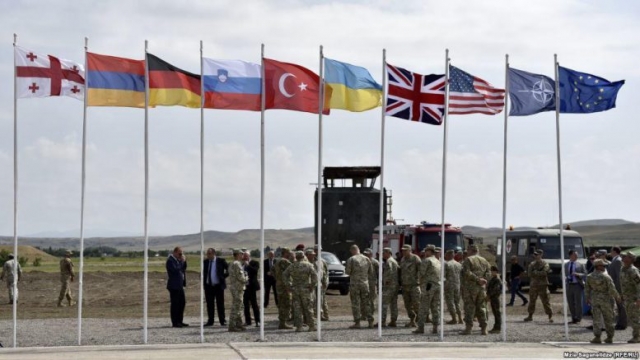Turkey Rejects Russian Claims In Georgia
The Foreign Ministry of Turkey condemned Syrian dictator Bashar al-Assad on Wednesday for what it labelled a “clear violation” of international law in recognizing the sovereignty of Abkhazia and South Ossetia, two Georgian breakaway regions invaded by Russia in 2008.
The dispute over the sovereignty of Georgia is the latest in years of disagreements between Assad and Turkish President Recep Tayyip Erdogan, who have both referred to each other as “terrorists.” It also creates a new rift in the increasingly complicated relationship between Turkey and Russia, who have deep financial interests in maintaining friendly relations but have backed opposite sides of the Syrian Civil War.
Assad’s regime announced Tuesday that it had “agreed to exchange recognition and set up Embassy-level diplomatic relations” with both Abkhazia and South Ossetia as two separate sovereign states.
“The decision recently taken by the Syrian regime to recognize the so-called independence of Georgia’s regions of Abkhazia and South Ossetia and to establish diplomatic relations with these regions is an open violation of international law,” the Turkish Foreign Ministry said.
Russia invaded both regions in 2008, claiming to do so in defense of the Russian-speaking populations there. The ensuing war triggered a flurry of panicked American media appearances by Putin foe and then-Georgian President Mikheil Saakashvili but, while the conflict ultimately subsided, the fighting forced nearly 200,000 people in both regions out of their homes and resulted in a drop in the ethnic Georgian population of the region.
In 2015, Russian President Vladimir Putin announced an “integration” treaty with both breakaway regions that granted Russia the right to control the regions’ national security and borders.
Syria’s recognition of the breakaway regions appears to be an attempt by the Assad regime to ingratiate itself further with Russia, which has invested heavily in ensuring Assad remains the dictator of that country throughout the civil war.
Despite Turkey’s significant opposition to Assad, it has agreed to several plans with Russia to “deepen coordination” on the battlefield, ostensibly against jihadist terrorists that have taken advantage of the chaos to find a place for themselves. Russia and Turkey have also signed a nuclear power agreement in which Russia will build the nation’s first nuclear power plant – or, as Putin described it in April, Russia is “founding Turkey’s nuclear sector.”
The economic and diplomatic incentives have partially concealed Erdogan’s promise that the Turkish military invaded Syria “to end the rule of the tyrant Assad,” and not for “any other reason,” which is directly at odds with Russia’s interests in the country.
By Shawn Wayne












